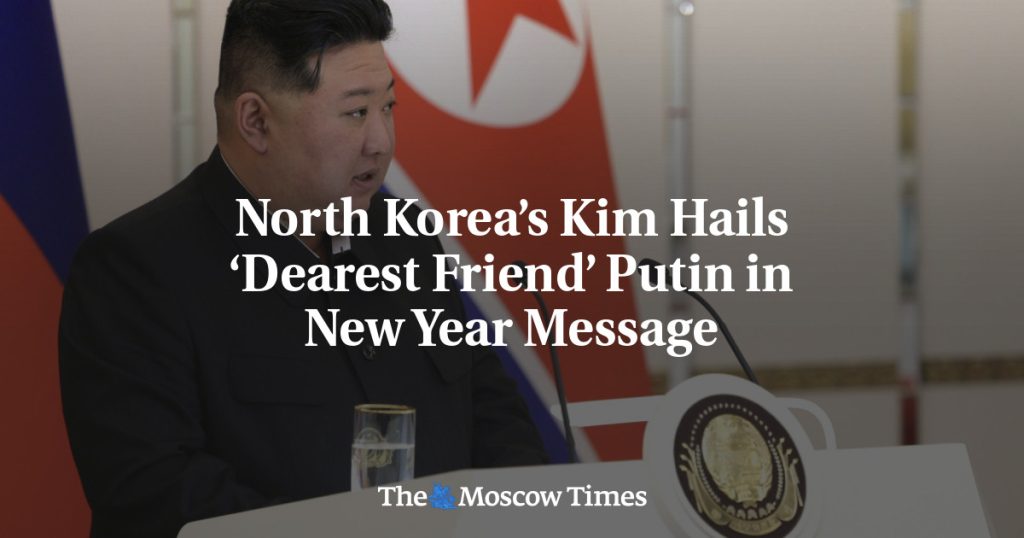North Korean leader Kim Jong Un has recently praised Russian President Vladimir Putin in a New Year’s letter, referring to him as his “dearest friend” and expressing warm greetings towards the Russian people and military personnel. This letter comes in the context of deepening ties between the two countries since Russia’s invasion of Ukraine in 2022. The relationship between Putin and Kim has been portrayed as close, with both leaders emphasizing their personal closeness on multiple occasions.
The bond between Moscow and Pyongyang was further solidified with the signing of a landmark defense pact during Putin’s visit to North Korea in June. This defense pact obligates both countries to provide immediate military assistance to the other in the event of an invasion, and it has recently come into effect. Kim’s letter to Putin emphasized their friendship and cooperation, expressing a willingness to work on new projects beyond their achievements in 2024. The North Korean leader also expressed hope for the defeat of neo-Nazism by the Russian army and people in 2025.
There have been accusations from the United States and South Korea that North Korea has sent over 10,000 soldiers to aid Russia in its war against Ukraine. This move is perceived as an opportunity for Kim to acquire advanced technology from Moscow and gain battle experience for his own troops. Putin, in a similar message to Kim, praised the bilateral ties between Russia and North Korea. The relationship between the two countries has been strengthening, with both leaders emphasizing their commitment to one another.
The significant political, military, and cultural ties that have been established between Russia and North Korea have raised concerns and drawn attention from other countries. The deepening relationship between Moscow and Pyongyang has implications for the geopolitical landscape, particularly in light of ongoing conflicts such as the war in Ukraine. The defense pact between the two countries signifies a level of commitment to mutual support and cooperation in the face of external threats.
Despite the challenges faced by independent journalism in Russia, outlets like The Moscow Times continue to strive for accurate and unbiased reporting. The recent designation of The Moscow Times as an “undesirable” organization reflects the ongoing suppression of journalistic freedom in Russia. The support of readers is crucial in sustaining independent journalism and upholding the principles of open and transparent reporting. By standing with organizations like The Moscow Times, individuals can defend the importance of free speech and encourage diverse perspectives in media coverage.
As the relationship between Russia and North Korea evolves and draws international attention, the significance of bilateral ties and mutual support between the two countries becomes increasingly apparent. The close friendship between Kim Jong Un and Vladimir Putin, as well as the defense pact signed between their nations, indicate a strategic alignment and commitment to cooperation. While challenges and controversies persist in the realm of geopolitics and journalism, the voices of independent media outlets like The Moscow Times continue to play a vital role in promoting transparency and accountability in global affairs.


